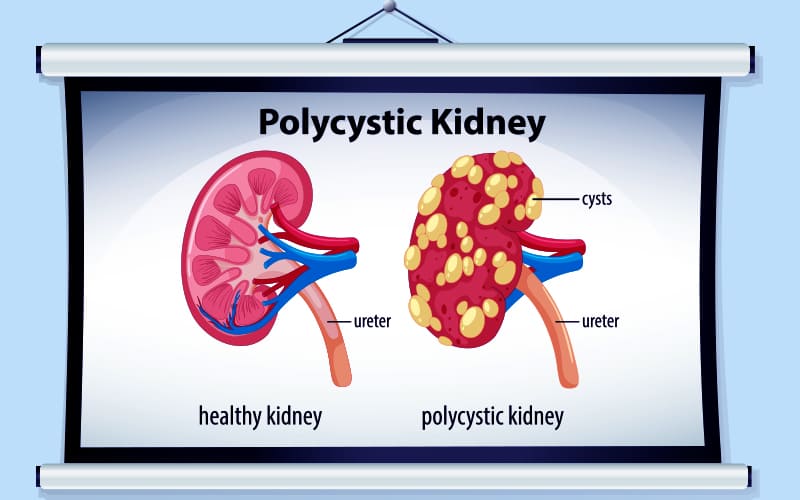A genetic disease that affects the kidneys, PKD or Polycystic Kidney Disease, is a condition that affects around 1 in 400 to 1000 individuals in the world. Moreover, it affects around 1 in 20,000 children in the world as well.
Rare though it may be, the disease can turn deadly and cause a lot of pain to the sufferer. Hence, Dr. Amitabha Saha, the best kidney specialist in Kolkata, gives you an idea of the condition. Check out the details only here.
What is PKD?
PKD is a condition that occurs when fluid-filled cysts are formed in the kidney, often enlarging the size of the kidney. This is a form of chronic kidney disease that hampers the functioning of these bean-shaped organs and may ultimately lead to kidney failure.

How Many Types of PKD Are There?
Typically, there are two types of PKD, they are Autosomal Dominant PKD and Autosomal Recessive PKD. Let’s take a closer look at what they are!
- Autosomal Dominant PKD
This type of PKD is passed from parent to child through the dominant inheritance. 90% of cases of PKD are all ADPKD. The symptoms begin between the ages of 30 to 40.
- Autosomal Recessive PKD
Also known as infantile PKD, this is passed by recessive inheritance. It occurs in 1 out of 25,000 people and is very serious, progressing very quickly. Symptoms may begin in the womb.
There is a third type of PKD which Dr. Amitabha Saha, the best kidney specialist in Kolkata, would like to bring to your notice.
Acquired Cystic Kidney Disease
This occurs in those people who have long-term kidney damage and severe scarring. Around 90% of those persons who opt for dialysis for 5 years, end up with ACKD.
When to Consult A Doctor?
It is very normal for people to live with PKD unnoticed for years. It is when the cyst becomes half an inch in size that symptoms begin to show. The symptoms include pain, high blood pressure, back or side pain, blood in urine, headaches, kidney stones, and increased size of the abdomen due to enlarged kidneys. If you are a first-degree relative of someone with PKD, you need to consult with the best kidney specialist in Kolkata, as the condition requires a lot of monitoring and regulation.

Wrapping Up
In case you notice any of the symptoms of PKD and are eager to consult with a doctor, do get in touch with Dr. Amitabha Saha. Apart from monitoring your condition and providing you with excellent advice on the condition, he will also help you to cope with the complications of the disease.
